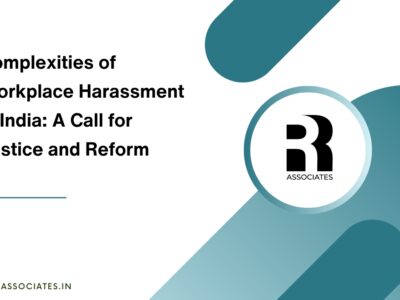In the dynamic landscape of contemporary workplaces, a comprehensive understanding of right-to-know regulations holds paramount importance for both employers and employees. These regulations play a pivotal role in fostering a secure and healthy work environment. It also simultaneously promotes transparency and accountability. By acquainting ourselves with the significance of right-to-know regulations, we can establish a workplace environment that places the well-being of all individuals at the forefront.

The Significance of Right-to-Know Regulations in Addressing Workplace Safety Issues
Ensuring Employee Safety
The primary objective of right-to-know regulations is to safeguard the health and safety of employees. These regulations mandate that employers disclose pertinent information about potential hazards, such as hazardous chemicals or materials, present in the workplace. By providing employees with this critical information, they can adopt appropriate precautions and shield themselves from potential risks.
Under right-to-know regulations, employers bear the obligation of maintaining accurate and up-to-date safety data sheets (SDS) for hazardous substances. These sheets furnish vital details concerning the properties and potential hazards associated with specific substances. Additionally, employees must receive comprehensive training on the safe handling, storage and utilization of hazardous materials.
Promoting Workplace Transparency
Transparency serves as a linchpin in cultivating a positive and productive work environment. Right-to-know regulations contribute to transparency by ensuring that employees have access to relevant information pertaining to their workplace. This encompasses information regarding potential hazards, safety procedures, and emergency protocols.
By availing themselves of this information, employees can make informed decisions concerning their own safety and well-being. They can actively participate in fostering a safer work environment by adhering to established safety guidelines and promptly reporting any potential hazards or concerns.
Addressing Sexual Harassment at Workplace
Right-to-know regulations also play a crucial role in addressing the issue of sexual harassment at the workplace. By promoting transparency and accountability, these regulations contribute to creating a work environment that is free from harassment and ensures the dignity and well-being of all employees.
The prevalence of sexual harassment in the workplace is a significant concern that affects individuals across various industries. According to recent data from a national survey, it is estimated that 1 in 3 women and 1 in 6 men have experienced some form of sexual harassment in their professional lives. These statistics highlight the urgent need for robust measures to prevent and address such misconduct.
Right-to-know regulations provide a framework for employers to establish clear policies and procedures for addressing sexual harassment. They require employers to communicate the company’s policies regarding sexual harassment to all employees, ensuring that everyone is aware of their rights and the consequences of engaging in or tolerating such behavior.
Furthermore, these regulations emphasize the importance of training programs that educate employees about sexual harassment prevention, reporting mechanisms and the support available to victims. By providing comprehensive training, employers empower employees to recognize and respond to instances of sexual harassment, fostering a culture of respect and zero tolerance for misconduct.
Implementing right-to-know regulations also facilitates the establishment of reporting mechanisms that allow employees to confidentially report incidents of sexual harassment. These mechanisms should ensure protection against retaliation and provide a safe space for victims to come forward without fear of adverse consequences. It is crucial for employers to handle reports promptly and conduct thorough investigations to address complaints effectively.
Legal Compliance and Avoidance of Penalties
Compliance with right-to-know regulations is not merely a moral imperative, but also a legal mandate. Non-compliance can lead to severe penalties and legal repercussions for employers. Hence, it is crucial for businesses to remain abreast of the latest regulations and ensure complete adherence within their workplaces.
Failure to comply with right-to-know regulations can result in fines, lawsuits and, in extreme cases, criminal charges. These penalties can exert a substantial impact on a business’s reputation and financial stability. By prioritizing compliance, businesses can mitigate potential risks and maintain a positive image within their industry.
Enhancing Employee Morale and Engagement
Employees who feel valued and well-informed are more likely to exhibit high levels of engagement and productivity. Right-to-know regulations contribute to fostering a culture of trust and respect in the workplace. When employees have access to information about potential hazards and understand the measures taken to mitigate risks, they can feel more confident in their working environment.
Furthermore, the provision of training and educational opportunities related to right-to-know regulations demonstrates a commitment to employee well-being. It empowers employees with the knowledge and skills necessary to prioritize their own safety and contribute to a safer workplace for all.
Encouraging Sustainability and Environmental Responsibility
Right-to-know regulations extend beyond employee safety and encompass environmental responsibility as well. Businesses must disclose information about the potential environmental impact of their operations and ensure proper handling and disposal of hazardous materials.
By adhering to these regulations, businesses can minimize their ecological footprint and contribute to sustainable practices. This commitment to environmental responsibility not only benefits the planet but also enhances a company’s reputation as a responsible corporate citizen.
Conclusion
Right-to-know regulations constitute an indispensable component of a secure and productive work environment. By prioritizing compliance with these regulations, businesses can safeguard their employees, foster transparency, avert legal consequences, and promote a culture of trust and engagement. Additionally, adhering to right-to-know regulations contributes to sustainability and environmental responsibility.
It is imperative for businesses to remain well-informed about the latest regulations and implement robust systems to ensure compliance. By doing so, they can create a workplace that prioritizes the well-being of all individuals involved and demonstrates a commitment to safety, transparency and environmental stewardship.
FAQs
What are right-to-know regulations in the workplace?
Right-to-know regulations in the workplace refer to a set of legal requirements that mandate employers to disclose pertinent information to employees regarding potential hazards, safety procedures, and other relevant details about the workplace environment. These regulations aim to promote transparency, accountability and employee safety by ensuring that individuals have access to information necessary for making informed decisions about their well-being.
How do right-to-know regulations promote employee safety?
Right-to-know regulations promote employee safety by requiring employers to disclose information about potential hazards present in the workplace. This includes providing details about hazardous substances, their properties, and associated risks. By making this information available to employees, they can take appropriate precautions, use safety measures and handle hazardous materials in a manner that minimizes the risk of accidents, injuries, and occupational illnesses.
Additionally, right-to-know regulations often necessitate the implementation of training programs to educate employees on the proper handling, storage, and use of hazardous materials. By equipping employees with the knowledge and skills necessary to navigate potential risks, these regulations contribute to creating a safer work environment.
What is the impact of right-to-know regulations on addressing sexual harassment?
Right-to-know regulations have a significant impact on addressing sexual harassment in the workplace. These regulations emphasize the importance of clear policies and procedures for preventing and addressing sexual harassment. By requiring employers to communicate these policies to all employees, right-to-know regulations ensure that individuals are aware of their rights and the consequences of engaging in or tolerating such behavior.
Furthermore, right-to-know regulations often mandate the implementation of training programs that educate employees about sexual harassment prevention, reporting mechanisms and the support available to victims. By providing comprehensive training, employers empower employees to recognize and respond to instances of sexual harassment, fostering a culture of respect and zero tolerance for misconduct.
Moreover, right-to-know regulations often require the establishment of reporting mechanisms that allow employees to confidentially report incidents of sexual harassment. These mechanisms ensure protection against retaliation and provide a safe space for victims to come forward without fear of adverse consequences. By implementing such mechanisms and handling reports promptly and thoroughly investigating complaints, employers can effectively address instances of sexual harassment and create a workplace environment that prioritizes the well-being and dignity of all employees.




